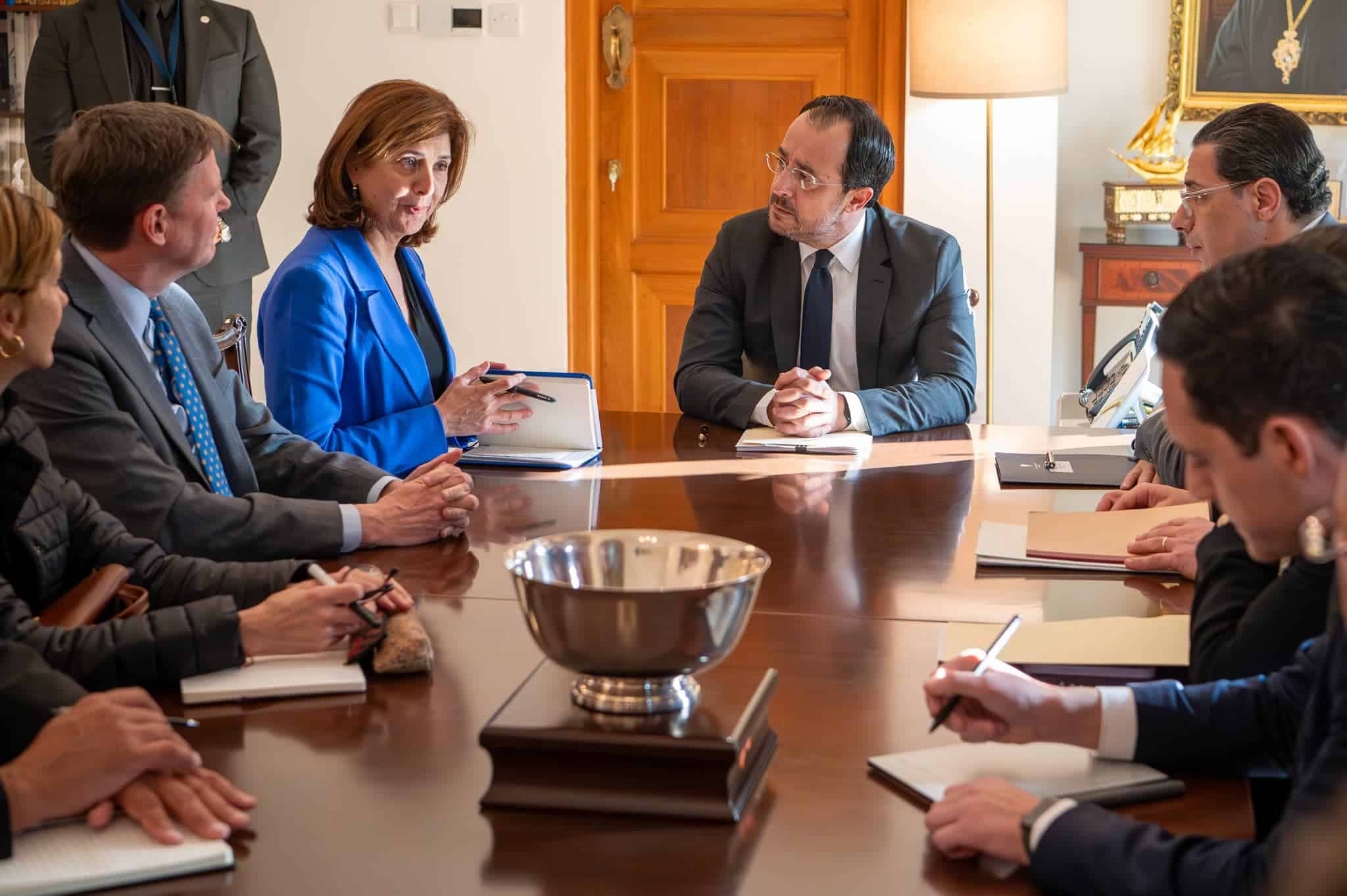The UN secretary-general’s personal envoy, Maria Angela Holguin, left Cyprus after meeting the leaders on Monday, with nothing to show for her efforts. Monday’s meeting with Turkish Cypriot leader Ersin Tatar lasted less than 15 minutes and Holguin expressed her surprise at his publicly stated rejection of her proposal for a meeting with her and President Nikos Christodoulides.
“Our aim should have been to give diplomacy a chance,” Holguin told Kathimerini. Tatar meanwhile insisted the Turkish Cypriot side will not budge from its position on sovereign equality and equal international status, while accusing Holguin of “violating her terms of reference”. Having established there was no common ground for the resumption of talks, Holguin was now going beyond her brief, he said, suggesting her mission was over.
Holguin will now prepare a report about her mission to Secretary-General Antonio Guterres, who will presumably decide the next steps. What next step there can be when she cannot persuade Tatar to agree to a meeting with Christodoulides is open to question. The possibility that Guterres would call an end to the search for common ground before the expiry of the six months of her mission cannot be ruled out.
If the purpose of this latest failed initiative was for Christodoulides to win the blame game and shelve the Cyprus problem for the rest of his presidency, then he has succeeded. Tatar’s refusal to even agree to a meeting was emphatic proof that a biggest share of the blame for the continuation of the deadlock belongs to him and Turkey which backed him. But had Christodoulides gone to all the trouble to persuade Guterres to send a personal envoy just to prove that the Turkish side was to blame for the deadlock?
It is difficult to say if this was his objective. Perhaps he had hoped there would have been a softening of the Turkish position once the envoy was here. This did not materialise and he was not prepared to show the flexibility – some could have seen this as making concessions – that would have broken the deadlock. Holguin pointedly said that Christodoulides had “a very clear picture of what could unlock the process,” implying that he was not prepared to unlock it. In a way she was implicitly blaming the lack of progress on his refusal to unlock the process.
This is what is puzzling. Christodoulides secured the appointment of a personal envoy, knowing full well that he would have to be creative and flexible to persuade Tatar to agree to a resumption of talks, but once she arrived he did nothing to help her achieve a breakthrough. He was under the illusion that the mere presence of an envoy would somehow persuade Tatar and Turkey to agree to a resumption of talks, without any move being made by him.
Was it a terrible miscalculation or was this what he wanted – the ability to blame the Turkish side for the continuing deadlock?







Click here to change your cookie preferences